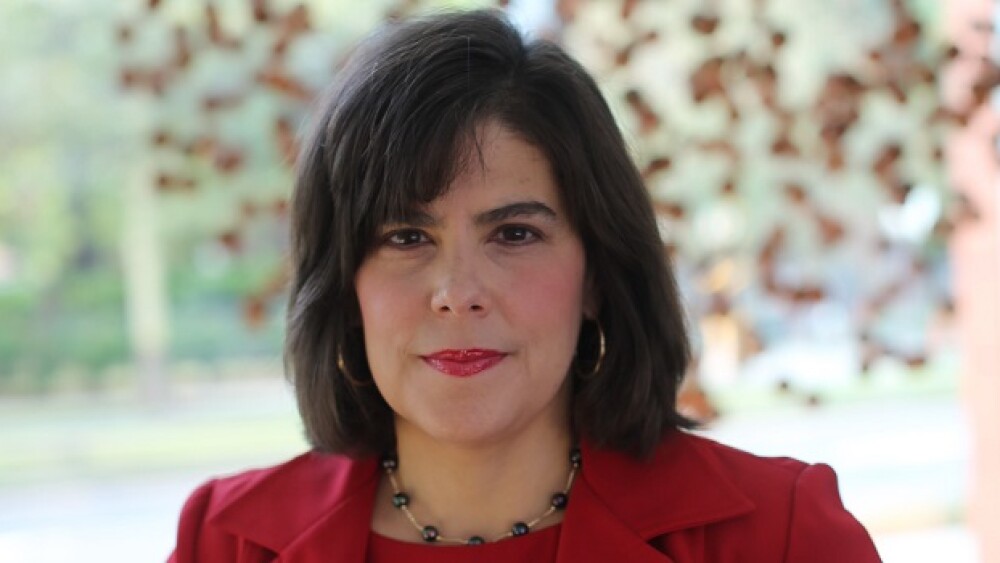BrainStorm Cell Therapeutics appoints a new co-CEO as it prepares for a January 11th Type A meeting for ALS hopeful NurOwn.
BrainStorm Co-CEO Stacy Lindborg, Ph.D./courtesy of BrainStorm Cell Therapeutics
BrainStorm Cell Therapeutics concluded 2022 on a cautiously optimistic note as the FDA granted a Type A meeting to discuss the refuse to file letter it served the Israel and New York-based biotech in November for its ALS hopeful, NurOwn.
The meeting is scheduled to take place on Jan. 11th.
BrainStorm is seeking an advisory committee meeting. For context, ALS competitor Amylyx’s Relyvrio (formerly AMX0035) enjoyed the benefit of not one, but two adcomms prior to its September approval.
BrainStorm believes an adcomm would “serve as an important part of the review process and…provide an open forum for BrainStorm, together with medical experts, statisticians, patients and other members of the ALS community to discuss the body of clinical evidence supporting NurOwn,” Chaim Lebovits, BrainStorm CEO, said in a statement.
The clinical profile of NurOwn, a therapy made up of autologous mesenchymal stem cells (MSC) and neurotrophic factors (NTF), is what appears to be in question at the FDA.
Highlights from the nearly three-year regulatory saga include:
- A high placebo response: In the Phase III trial, NurOwn hit the primary treatment response endpoint, with 34.7% of therapy recipients seeing an improvement of 1.5 points per month. However, the placebo response of 27.7% exceeded those of others observed in contemporary ALS trials.
- A pre-specified subgroup of patients with early-stage disease achieved a meaningful response (34.6%) across all primary and secondary endpoints. This was compared to 15.6% in the placebo group.
- A correction posted by BrainStorm in August to the initial trial results published in Muscle and Nerve. The adjustment resulted in a statistically significant treatment difference of 2 points in average change from baseline on the ALSFRS-R scale.
Despite hopes that the correction would buttress NurOwn’s case, the FDA appeared not to agree, handing down an RTF letter for NurOwn in this indication. The therapy is also being assessed in a Phase II trial in progressive multiple sclerosis.
In the company’s Q3 earnings call, Lebovits said it was clear the regulator still sought “substantial evidence defined by statistically significant results as measured by the endpoints of the Phase III trial.”
The RTF sparked frustration from some patient advocacy groups like Stevens Nation, which stated the FDA’s position “ignores the vast evidence of efficacy and denies both the company’s and patients’ rights of due process.” The group further stated it believes the RTF does not adhere to FDA’s own guidance.
In 2019, the FDA implemented the Guidance Document for ALS, which emphasized the regulator’s willingness to “exercise regulatory flexibility” for the “critical unmet need” in ALS.
The FDA doubled down on that commitment in June 2022, when it released the “Action Plan for Rare Neurodegenerative Diseases, Including ALS.”
The five-year strategy aims to advance the development of safe and effective medical products and facilitate patient access to novel treatments. The FDA called it a blueprint for how the agency would “move forward aggressively” to this end.
C-suite Shuffle
On Wednesday, BrainStorm made a series of C-suite moves in what could be a show of confidence in NurOwn’s ability to prevail.
The company announced the promotion of Stacy Lindborg, to the role of co-chief executive officer. Lindborg, currently EVP and chief development officer, will share the CEO responsibilities with Lebovits.
Current president and CMO Ralph Kern will retire from these positions and transition to BrainStorm’s Scientific Advisory Board. Lebovits will re-assume the president title. In an e-mail to BioSpace, BrainStorm confirmed Kern will be in attendance at the Type A meeting.
Lindborg’s promotion “is part of a broader strategic initiative to build out our leadership team and position BrainStorm for success,” Lebovits said in a prepared statement.
He added that Lindborg’s track record in late-stage clinical development and commercial strategy means she is “exceptionally well qualified to guide BrainStorm” as it prepares to enter the next phase as a company.
At Biogen, Lindborg contributed to the approval of spinal muscular atrophy therapy Spinraza as vice president, analytics and data science. She followed this up with a stint as Head of R&D strategy at Eli Lilly.
In a prepared statement Wednesday, Lindborg said she would “relentlessly focus on the regulatory process to secure a path with FDA with the goal to make NurOwn available for ALS patients.”






